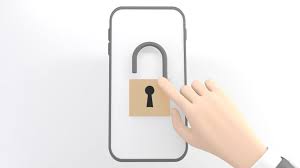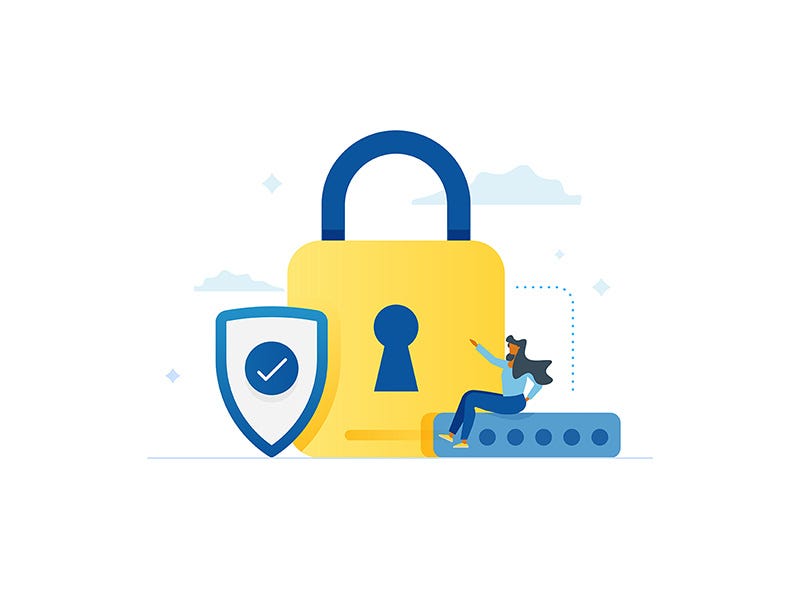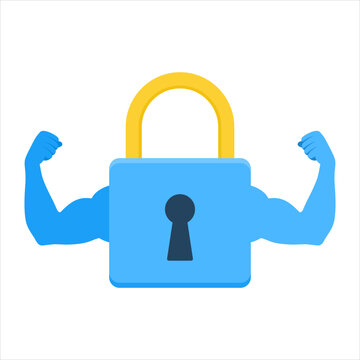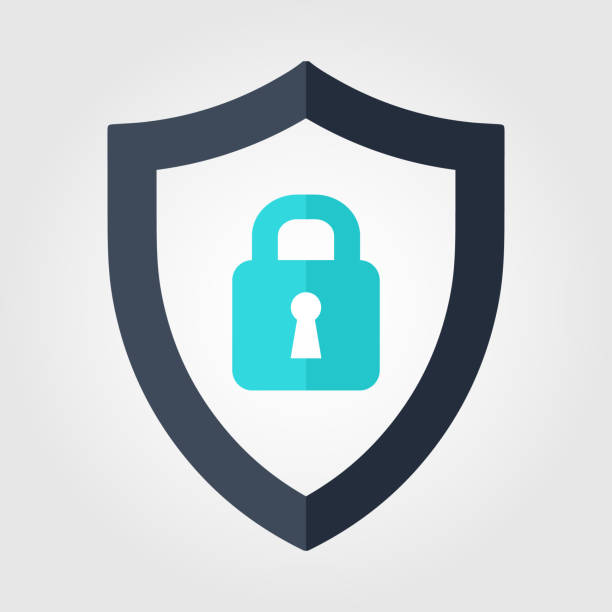How to secure your password- Tips are shared below
January 25, 2023 By Monica Green

(Image Credit Google)
Improve your online security with these seven essential guidelines for making strong, hacker-proof passwords.
Nowadays, we save more personal information online than ever before, and much of this sensitive information is protected by passwords, making it essential to have strong password security.
If you're still not persuaded, simply think about how much information someone could access if they guessed a weak password. They might quickly gain access to your emails, bank accounts, health information, social media profiles, and more.
However, if you require password assistance, don't freak out; instead, study our guide and take preventive measures. You can use these seven of the best tips for building strong, safe passwords to create new passwords or to update old ones that may be a little too flimsy.
Our security advice doesn't end there, either. If you want to know the distinctions between consumer and commercial antivirus software, go no further than our page for our recommendation of the top secure file hosting services.
[caption id="" align="aligncenter" width="300"]

Image credit- India Rag[/caption]
Avoid using characters and numbers that are simple for malicious people to guess if you want to build strong passwords.
Avoid genuine words, as they can be easily uncovered in dictionary assaults. Stop utilizing personal information in your passwords, such as significant dates or names, as anyone with access to even a small amount of personal information could figure out what they are.
https://www.gadgetany.com/news/google-password-manager-now-enables-users-to-add-notes-to-their-new-old-passwords/
Avoid using keyboard patterns or rows for your passwords because dictionary and brute force attacks can more easily guess them.
Instead, use random combinations of letters, numbers, and special characters to build your passwords. Use both capital and lowercase letters, and make your passwords as long as you can.
Longer passwords are more difficult for automated systems to crack. Alternately, utilize phrases to make lengthy passwords that are simple to remember yet difficult to guess (opens in new tab).
If possible, you should also make your device's PIN numbers and passwords stronger. You can choose to utilize tighter codes and login methods rather than just a four-character PIN on Apple and Android devices, making it more difficult for someone to break into your phone, tablet, or laptop.
[caption id="" align="aligncenter" width="800"]

Image credit- Medium[/caption]
Never reuse passwords
It's all too easy to fall into the trap of using the same password phrase across several websites because it makes login information easier to remember.
Even though we've all done it, it's not always the greatest strategy to protect your emails, social media accounts, and other accounts.
Use unique passwords instead for each website, app, and system you use. Even though it may be difficult to remember, this will significantly increase the security of your data because it can shield other websites even if one of them is compromised.
Implement a password manager
Using a password manager is a simple solution to the challenging problem of remembering numerous distinct passwords.
The best password managers will store all of your passwords in encrypted files, giving you peace of mind that your data is secure and saving you the hassle of having to try to remember a tonne of different passwords.
The finest password managers also offer password-generating modules, so you don't even need to think of passwords; they'll come up with super-secure phrases for you. A top-notch password manager will automatically fill in usernames and passwords; some even support VPNs; all of them also provide multi-factor authentication for further security.
We've compiled a list of the top password managers if you're looking for some advice on where to find one of these apps.
[caption id="" align="aligncenter" width="360"]

Image creddit- Adobe Stock[/caption]
Avoid depending on your browser
Numerous popular browsers provide built-in password management features. Theoretically, that's fantastic because you can keep your passwords there directly rather than relying on yet another service.
However, you shouldn't keep passwords in your browser if you want the best possible password security.
Passwords can be directly stolen from browsers by hackers using cookies and malware, but professional password managers typically have superior encryption—making your data secure. That holds true even if your device is taken because your credentials aren't readily accessible in your browser.
Don't record them
Everyone has family members that write passwords down or save them in a notepad. And that undoubtedly looks like a decent technique to make sure you never forget a password if you're not particularly tech-savvy.
That is undoubtedly the case, but it also presents a wonderful opportunity for thieves to access all of your crucial accounts. All they need to do is break into your home, take your car, or swipe your purse.
Never write down your passwords. Use a multi-factor authentication password manager as an alternative to ensure complete security.
Use more reliable authentication techniques
In reality, you ought to employ multi-factor authentication (MFA) whenever possible, including on your devices, password manager, and accounts.
By adding additional layers of security to all of your logins, this system, also known as MFA or two-factor authentication (2FA), increases security.
[caption id="" align="aligncenter" width="612"]

Image credit- iStock[/caption]
If you enable MFA or 2FA, only your password will be needed to access your accounts. Your password must be supported by additional verification instead. Other methods involve third-party authentication apps or security codes that are emailed to your phone. Alternative methods employ your fingerprint, face recognition on some devices, or third-party authentication apps.
Because of the additional protection, no one can access your accounts using just your password; they also need information from you. It's a great method to increase the security of your accounts, so make sure to activate it once it's available.
Keep them for a brief period of time
Even with a strong security regime secured by biometrics, strong passwords, and multi-factor authentication, no security solution is 100% foolproof.
Your most important data should be protected by additional layers of security, thus you should change your passwords periodically.
Your passwords will probably end up on the black web at some point because frequent thefts reveal login and password information for billions of accounts; but, if you routinely update your passwords, those old codes are meaningless.


 Image credit- Medium[/caption]
Never reuse passwords
It's all too easy to fall into the trap of using the same password phrase across several websites because it makes login information easier to remember.
Even though we've all done it, it's not always the greatest strategy to protect your emails, social media accounts, and other accounts.
Use unique passwords instead for each website, app, and system you use. Even though it may be difficult to remember, this will significantly increase the security of your data because it can shield other websites even if one of them is compromised.
Implement a password manager
Using a password manager is a simple solution to the challenging problem of remembering numerous distinct passwords.
The best password managers will store all of your passwords in encrypted files, giving you peace of mind that your data is secure and saving you the hassle of having to try to remember a tonne of different passwords.
The finest password managers also offer password-generating modules, so you don't even need to think of passwords; they'll come up with super-secure phrases for you. A top-notch password manager will automatically fill in usernames and passwords; some even support VPNs; all of them also provide multi-factor authentication for further security.
We've compiled a list of the top password managers if you're looking for some advice on where to find one of these apps.
[caption id="" align="aligncenter" width="360"]
Image credit- Medium[/caption]
Never reuse passwords
It's all too easy to fall into the trap of using the same password phrase across several websites because it makes login information easier to remember.
Even though we've all done it, it's not always the greatest strategy to protect your emails, social media accounts, and other accounts.
Use unique passwords instead for each website, app, and system you use. Even though it may be difficult to remember, this will significantly increase the security of your data because it can shield other websites even if one of them is compromised.
Implement a password manager
Using a password manager is a simple solution to the challenging problem of remembering numerous distinct passwords.
The best password managers will store all of your passwords in encrypted files, giving you peace of mind that your data is secure and saving you the hassle of having to try to remember a tonne of different passwords.
The finest password managers also offer password-generating modules, so you don't even need to think of passwords; they'll come up with super-secure phrases for you. A top-notch password manager will automatically fill in usernames and passwords; some even support VPNs; all of them also provide multi-factor authentication for further security.
We've compiled a list of the top password managers if you're looking for some advice on where to find one of these apps.
[caption id="" align="aligncenter" width="360"] Image creddit- Adobe Stock[/caption]
Avoid depending on your browser
Numerous popular browsers provide built-in password management features. Theoretically, that's fantastic because you can keep your passwords there directly rather than relying on yet another service.
However, you shouldn't keep passwords in your browser if you want the best possible password security.
Passwords can be directly stolen from browsers by hackers using cookies and malware, but professional password managers typically have superior encryption—making your data secure. That holds true even if your device is taken because your credentials aren't readily accessible in your browser.
Don't record them
Everyone has family members that write passwords down or save them in a notepad. And that undoubtedly looks like a decent technique to make sure you never forget a password if you're not particularly tech-savvy.
That is undoubtedly the case, but it also presents a wonderful opportunity for thieves to access all of your crucial accounts. All they need to do is break into your home, take your car, or swipe your purse.
Never write down your passwords. Use a multi-factor authentication password manager as an alternative to ensure complete security.
Use more reliable authentication techniques
In reality, you ought to employ multi-factor authentication (MFA) whenever possible, including on your devices, password manager, and accounts.
By adding additional layers of security to all of your logins, this system, also known as MFA or two-factor authentication (2FA), increases security.
[caption id="" align="aligncenter" width="612"]
Image creddit- Adobe Stock[/caption]
Avoid depending on your browser
Numerous popular browsers provide built-in password management features. Theoretically, that's fantastic because you can keep your passwords there directly rather than relying on yet another service.
However, you shouldn't keep passwords in your browser if you want the best possible password security.
Passwords can be directly stolen from browsers by hackers using cookies and malware, but professional password managers typically have superior encryption—making your data secure. That holds true even if your device is taken because your credentials aren't readily accessible in your browser.
Don't record them
Everyone has family members that write passwords down or save them in a notepad. And that undoubtedly looks like a decent technique to make sure you never forget a password if you're not particularly tech-savvy.
That is undoubtedly the case, but it also presents a wonderful opportunity for thieves to access all of your crucial accounts. All they need to do is break into your home, take your car, or swipe your purse.
Never write down your passwords. Use a multi-factor authentication password manager as an alternative to ensure complete security.
Use more reliable authentication techniques
In reality, you ought to employ multi-factor authentication (MFA) whenever possible, including on your devices, password manager, and accounts.
By adding additional layers of security to all of your logins, this system, also known as MFA or two-factor authentication (2FA), increases security.
[caption id="" align="aligncenter" width="612"]






